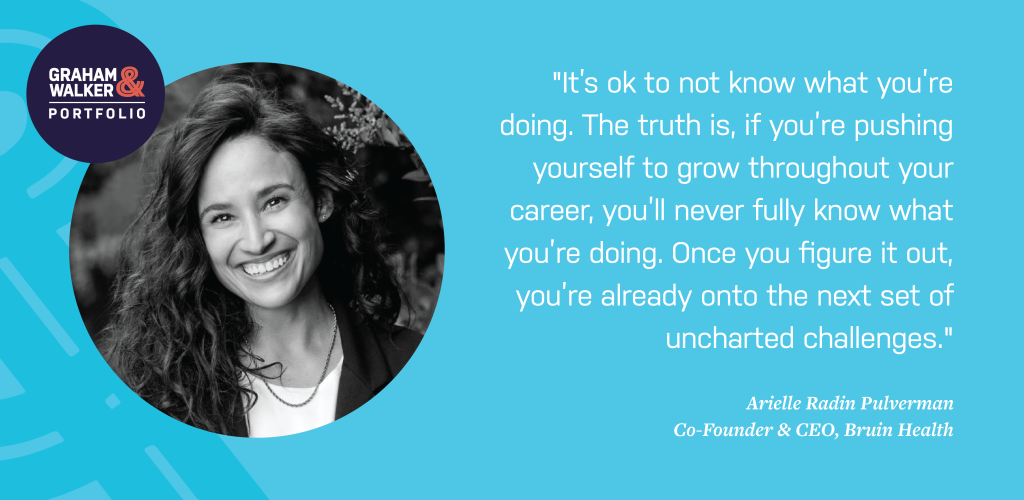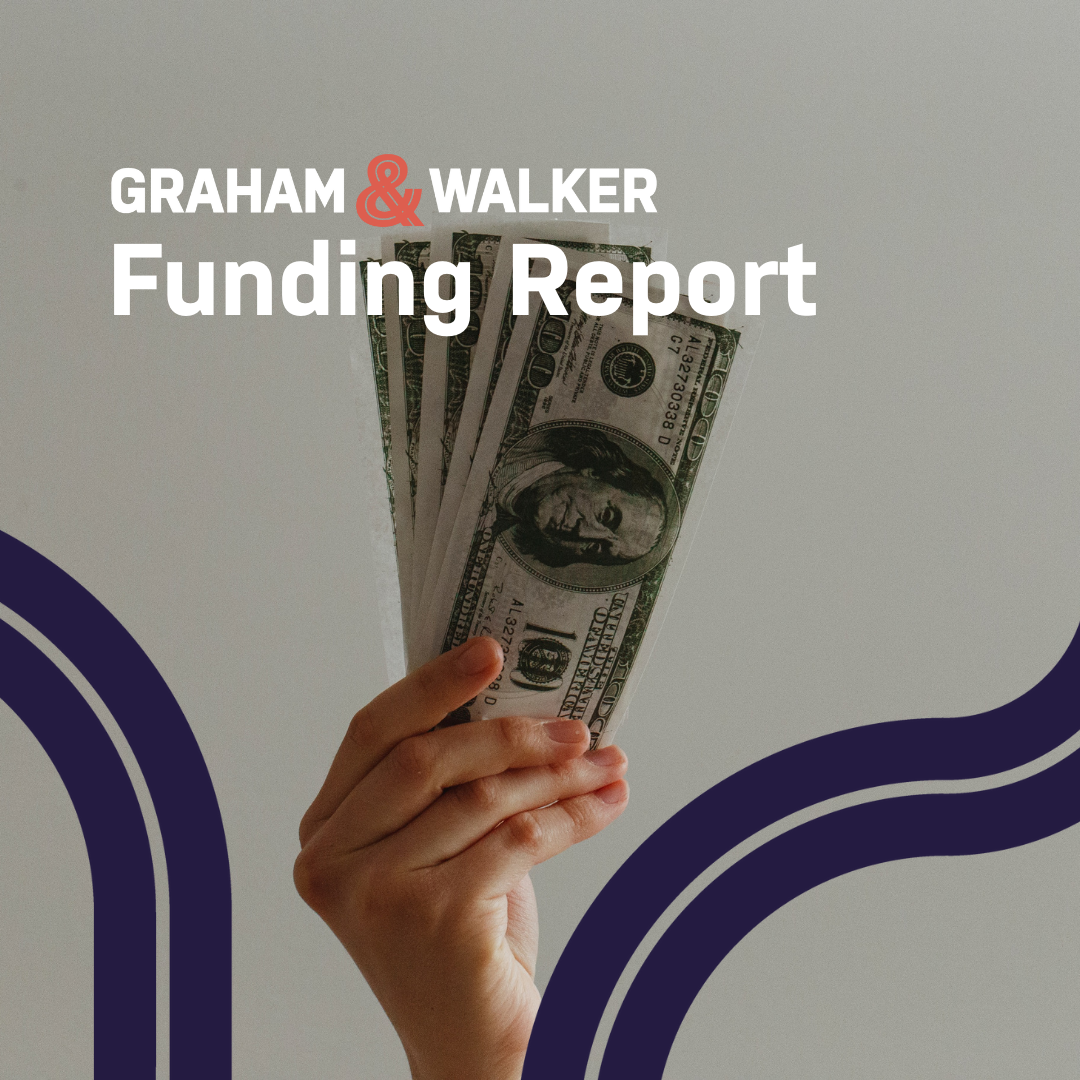
What inspired you to start your company?
I’m a health psychology researcher by training so my passion lies in how our mental and physical health are inextricably linked, all the way down to a biological level. While I loved the research I was conducting in academia, I observed just how wide the gap was between how clinical scientists were trained to evaluate and treat mental health conditions in academic settings and how patients were actually being diagnosed and treated in real world clinical care.
Throughout my PhD I had a side hustle working for an early-stage digital health startup where I met my now co-founder Andrew DiMichele. He was an experienced founder who was also passionate about improving mental health care. We worked closely together for over a year and during that time I realized that founding a startup together would be a great vehicle to get all of this impactful clinical science out of academia and into the real world.
The real ah-ha moment that sealed the deal for me was realizing we could use technology to encode concepts from health psychology research into an evidence-based way of evaluating and care planning to empower any healthcare provider to deliver high quality mental health care at scale. Imagine your PCP, Ob/Gyn, oncologist, or gastroenterologist being equipped to formally evaluate your mental health in the context of your physical health and get you connected with targeted care options that actually work for you. Not only is our approach helping stitch together mental and physical healthcare delivery, it’s also a really unique approach to solving the mental health care access problem.
What is the most important life, career or startup lesson you’ve learned and who (or what) taught it to you?
The most important startup lesson I’ve learned is to get out there and sell whatever you have as quickly as possible. It wasn’t until another founder told me to just get out there and start selling that I hadn’t even considered we were anywhere near ready to test the market. It’s not until you get your product in the hands of customers that you’ll actually start being able to iterate meaningfully. Worst case is that you find out no one wants to buy your solution, so you pivot before investing time and resources into a dead end. Best case is you find customers who are willing to take the time to tell you why your product is crappy. That means you’re onto something.
What is one thing you wish you’d known at the start of your startup journey?
It’s ok to not know what you’re doing. The truth is, if you’re pushing yourself to grow throughout your career, you’ll never fully know what you’re doing. Once you figure it out, you’re already onto the next set of uncharted challenges. I recently became totally at peace with this truth and have since adopted a permanent “growth mindset” – as a co-founder and CEO, it’s not my job to know how to do everything. It’s my job to maintain the vision, hire the folks who are way smarter than I am when it comes to their area of expertise, and to keep our team moving towards that vision in complete harmony.
What is the hardest part of being a founder? And what’s the most rewarding?
The hardest part for me is the uncertainty. As a scientist, I’m used to collecting 100% of the data I need to make informed decisions and come to conclusions that I can be confident in. As a founder, I have to move quickly and make decisions with only ~20% of the data I need. That means I’m going to be wrong a lot of the time. What matters is that I’m able to be agile and flexible and course correct as I collect the data in real time.
The most rewarding part is crafting a culture and designing an environment where folks can thrive. I love brainstorming with my co-founder about how we can create a unique org structure that’s actually conducive for health-minded folks like me (clinical, research teams) and tech-minded folks like him (engineers, PMs, designers) to work collaboratively together. Treating the company like the product is the most fun part of being a founder.
Tell us one (or more) fun facts about your team. (Could be about someone on the team, a fun story/memory, a quirky tradition you have, etc)
One unique and interesting thing we’re doing is intentionally “baking in” the clinical role throughout the organization. This means that we have clinicians/scientists coding alongside their engineering counterparts, owning product strategy, and leading sales calls and customer success. We think that this unique org structure is the only way for our product offerings to be truly evidence-based and clinically effective and for our commercial efforts with healthcare providers to be successful.
How will your company change the world?
Our envisioned future is one in which there is no distinction between mental and physical health care… it’s just health care. People will expect to receive – and doctors will be equipped to deliver – fully integrated and comprehensive care, whether that’s for a routine annual checkup with the PCP or as part of diabetes management with an endocrinologist.
Why do you do what you do?
I believe that the main reason our society tolerates mental health care that is ineffective and inefficient is because we treat mental health separately from physical health. I can’t imagine a person being ok with being told that they 1) have cancer (without being shown any kind of lab work or biopsy results) and 2) should “try” chemotherapy; it might work but we don’t really know why. It’s only once you replace mental health conditions with any other disease do you realize the absurdity of how crude our approach is. The only way to really change this is to make mental health part of our overall physical health care so that we apply the same standards. We could try to get all doctors to go through psychology PhDs to be able to deliver high quality mental health care or we could use technology to get that power into their hands today. That’s why I do what I do.
Where do you go for inspiration?
Books and journal articles! I love reading every morning before I start my work for the day. I try to balance my reading between business books (e.g., Built to Last and Building a Story Brand) and scientific articles (I’ll pick an article from my Google Scholar alerts). I also draw inspiration from speaking with doctors – I’ve always loved collaborating with physicians throughout my research career and I find them to be incredible thought partners when it comes to the solutions we’re building at Bruin.
Anything else you want people to know?
Being a female founder of a tech startup can feel incredibly lonely if you don’t have a support team around you. I’ve benefited tremendously from cultivating a strong network of supportive women and allies operating in health tech – fellow founders, clinical and scientific leads, advisors, and investors. Not only do they provide instrumental and emotional support, I’m also energized and inspired by them every day. Being a founder doesn’t have to be so lonely – don’t be afraid to reach out for support and advice.

